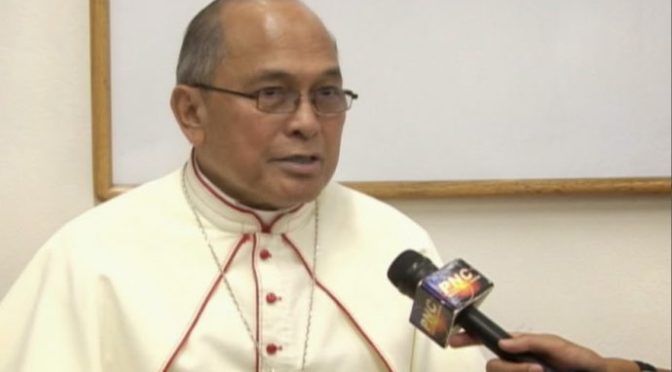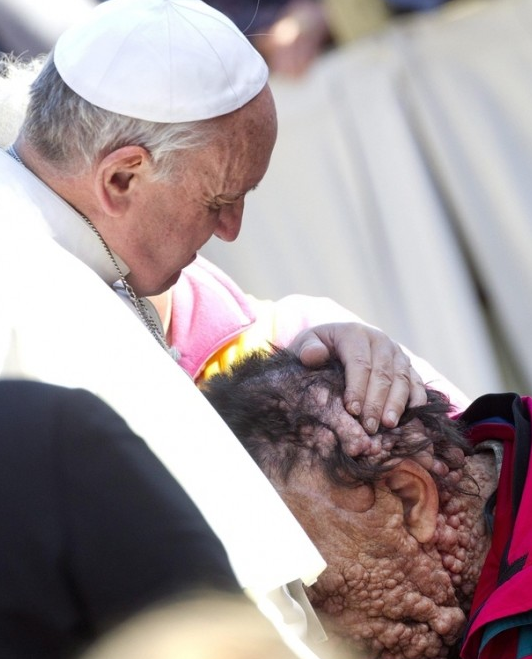From John Allen’s Crux blog: https://cruxnow.com/vatican/2016/06/06/pope-taps-interim-replacement-prelate-facing-abuse-charges/
Ines San Martin, June 6, 2016
In his latest effort to show resolve against clerical sexual abuse, Pope Francis on Monday appointed an apostolic administrator to take over the Church in Guam, where the island territory’s archbishop faces multiple allegations of abusing minors in the 1970s while he was a parish priest.
Until the situation surrounding Archbishop Anthony Apuron is clarified, his archdiocese, Agaña, will be supervised by the Hong Kong-born Archbishop Savio Hon Tai-Fai, currently the number two official of the Vatican’s Congregation for the Evangelization of Peoples.
Tai-Fai was appointed apostolic administrator “sede plena,” a rare practice used for grave or special reasons, typically when the current bishop is either incapacitated by illness or advanced age, or unable to govern for some other serious motive.
The appointment of an apostolic administrator means that the sitting bishop, in this case Apuron, no longer has jurisdiction over the archdiocese.
In recent weeks Apuron has come under fire for allegedly sexually abusing altar boys over 40 years ago, when he was serving as a priest in the Mount Carmel Church in Agat. The first accusation was made by Roy Taitague Quintanilla, now 52, who says he was 12 at the time the abuse allegedly happened.
Although he said he’s not sure the bishop remembers him, he’s asked for Apuron to step down and for other victims to come forward.
“I have been silent for 40 years. Mainly because I thought all this time I was your only victim and because I was embarrassed, humiliated, degraded and terribly confused about what to do,” Quintanilla said at a press conference in May.
“I thought if I said anything that people would not believe me or that people would retaliate against me for coming forward. Archbishop Apuron, I will not be silent anymore.”
A day after Quintanilla came forward, Vincent Pereda, a member of a board within Guam’s diocese that reviews sexual misconduct complaints, wrote an email to the church’s sexual abuse response coordinator saying he believes “credible, reasonable cause does exist … that the archbishop had engaged in sexual misconduct.”
A few weeks after Quintanilla came forward, Doris Concepcion, the mother of a man who was allegedly abused by Apuron decades ago when he was 11, also spoke out.
The bishop has repeatedly denied the allegations, and recently hired a United States law firm to represent himself.
“To be absolutely clear and to avoid any misinterpretations of my statement, I deny all allegations of sexual abuse by Roy Quintanilla,” he said in a video published in the diocesan webpage.
However, last week the former sexual abuse response coordinator of the diocese of Agana, Deacon Steve Martinez, called out the archbishop, saying that Apuron had purposely kept church policies on clerical sexual abuse weak in order to protect himself.
“Some people question why is Rome doing nothing,” Martinez said. “My comment to that is we don’t know if Rome’s doing nothing. All I can do from my point is hope and pray we can find a quick resolution to the problems we have.”
Monday’s announcement confirms that Rome was, in fact, doing something.
These are not the first allegations against Apuron.
In 2014, John Toves of California, accused the bishop of molesting his cousin, but Toves’ cousin never came forward to confirm the claims, and the archbishop was never charged.
Because of the statute of limitations, Apuron’s case is not prosecutable under criminal law based on the victims who have come forward so far and the dates of the alleged offenses.
However, the Vatican has the authority to set aside the usual statute of limitations in Church law, to prosecute clerics accused of sexual abuse. If a canonical investigation finds Apuron guilty, in theory he could be laicized, meaning removed from the clerical state.


